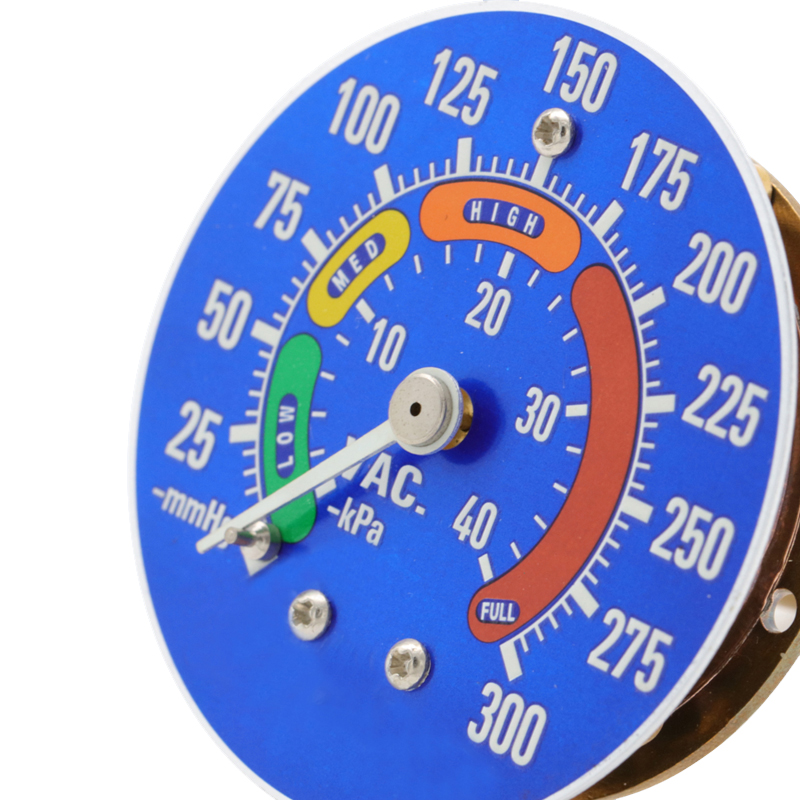
Nov . 20, 2024 01:16 Back to list
differential pressure gauge bellow type product
Understanding the Differential Pressure Gauge Bellow Type
In the world of industrial measurement, differential pressure gauges play a vital role in monitoring and controlling processes across various sectors, from oil and gas to water treatment facilities. Among several types of differential pressure gauges, the bellow type stands out for its unique design and operational capabilities. This article explores the principles, applications, and advantages of bellow-type differential pressure gauges.
What is a Differential Pressure Gauge?
A differential pressure gauge measures the difference in pressure between two points within a system. This parameter is crucial in applications such as fluid flow measurement, filter monitoring, and level measurement in tanks. By providing real-time data on the pressure differences, these gauges help operators make informed decisions and maintain optimal operating conditions.
Bellow Type Construction
The bellow-type differential pressure gauge consists of a flexible bellow which expands or contracts in response to pressure differentials. This bellow is typically made from materials like stainless steel or brass, selected for their durability and resistance to corrosion. The gauge is connected to two pressure sources through ports, allowing it to detect the difference in pressure effectively.
As the internal pressure changes, the bellow mechanically translates the pressure differential into a rotational movement. This movement is then indicated on a dial, providing the user with a visual representation of the pressure difference. This design ensures that the measurement is not only accurate but also responsive to rapid changes in pressure.
Applications of Bellow Type Differential Pressure Gauges
Bellow-type differential pressure gauges are used in various applications, primarily in industries requiring precise pressure monitoring. Some common applications include
1. Filtration Monitoring These gauges are instrumental in monitoring the performance of filters in liquid and gas systems. A significant change in differential pressure can indicate a blocked filter, prompting maintenance before system failure occurs.
2. Level Measurement In tanks, differential pressure gauges can determine liquid levels by measuring the pressure difference between the bottom of the tank and the atmospheric pressure.
differential pressure gauge bellow type product

3. Flow Measurement In fluid dynamics, these gauges are also used to measure the flow rate of liquids and gases by calculating the differential pressure across an orifice or a flow meter.
4. HVAC Systems In heating, ventilation, and air conditioning applications, bellow-type gauges help monitor the pressure differences across air filters and ducts, ensuring proper airflow and efficiency.
Advantages of Bellow Type Differential Pressure Gauges
Several advantages make bellow-type differential pressure gauges a popular choice in industrial settings
- Simplicity and Reliability The mechanical operation of the bellow allows for a straightforward and reliable measurement system. With fewer electronic components, these gauges can perform in challenging environments where electronic gauges might fail.
- High Sensitivity Bellow-type gauges can detect minor changes in pressure, providing accurate readings even with low differential pressures. This characteristic is particularly beneficial in sensitive applications where precision is critical.
- Robustness Made from durable materials, bellow-type gauges can withstand harsh environmental conditions, including extreme temperatures and corrosive substances. This durability ensures a longer lifespan with minimal maintenance.
- Versatility These gauges are adaptable for various applications, accommodating different pressure ranges and types of fluids, making them essential tools in many industries.
Conclusion
Bellow-type differential pressure gauges are invaluable instruments in industrial applications, providing essential data for process control and monitoring. Their mechanical design, high sensitivity, and robustness make them a preferred choice in many settings. Understanding their functionality and applications can help engineers and operators leverage these tools effectively to enhance productivity and ensure operational safety. As industries evolve, the significance of reliable measurement tools like bellow-type differential pressure gauges will undoubtedly continue to grow.
-
High-Precision 5 Valve Manifold Differential Pressure Gauge Suppliers
NewsApr.29,2025
-
High-Precision Diaphragm Vacuum Pressure Gauges Manufacturers & Quotes
NewsApr.29,2025
-
Omega Differential Pressure Gauges High Accuracy & Durability
NewsApr.28,2025
-
Low Pressure Differential Pressure Gauges Precision Solutions & Quotes
NewsApr.28,2025
-
Digital Diaphragm Pressure Gaauge Precision Measurement & OEM Quotes
NewsApr.28,2025
-
Differential Pressure Gauge China Price High-Accuracy & Best Quotes
NewsApr.28,2025
